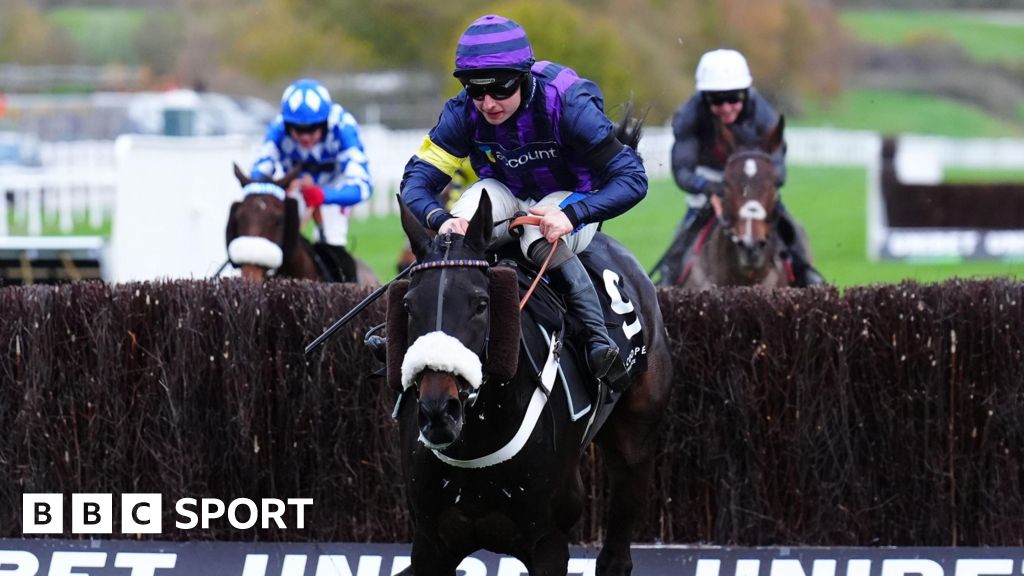Sunday’s third and final day of the November Meeting at Cheltenham was overshadowed by the death of three horses.
Abuffalosoldier collapsed after winning the Holland Cooper Handicap Chase, the fourth race of the day.
A statement from the racecourse said the seven-year-old, ridden by Sean Bowen and trained by Warren Greatrex, “was immediately attended (to) by expert veterinary professionals but sadly could not be saved”.
They added: “Our heartfelt condolences are with his connections.”
Earlier in the same race, Bangers And Cash, from the Ben Pauling yard, also collapsed when it was pulled up after the 14th fence.
In the fifth race of the day, Napper Tandy, trained by Matthew Smith, sustained a fatal injury after falling two hurdles from home.
A British Horseracing Authority spokesperson said: “The losses of Abuffalosoldier, Bangers And Cash and Napper Tandy at Cheltenham today are a tragedy for all connections and the thoughts of all of us at the BHA are with them.
“All three were provided with outstanding care and attention throughout their lives by those who cared for them and nobody will be more heartbroken tonight than those individuals.
“As with all fatalities, we will seek to understand the circumstances behind each incident as we strive to continue to reduce avoidable risk in our sport.”
After the deaths of Abuffalosoldier and Bangers and Cash, Liam Kearns, lead veterinary surgeon for Jockey Club Racecourses, told Racing TV: “(In) both cases we call them cardio-vascular collapse, as you can’t say at this stage whether it is a true heart attack or whether it is a major blood vessel that has ruptured. But it is of that nature and therefore it is a sudden death situation.
“The vets are deployed all around the racecourse so both horses were attended within seconds and in those situations of acute collapse there are some drugs we can administer but if it is a true cardio-vascular collapse, not a lot can be done.
“It’s a high-intensity racing situation. We have similar when marathon runners run or long-distance races are run – there is always a concern that athletes at a high level of exertion can without any previous symptoms present this situation.
“It’s a huge coincidence that it happened twice in the same race.
“All horses are thoroughly checked at home before they leave to go to the races, they are monitored carefully when they arrive at the races and trainers and connections love them to bits – no horse would go to the races with any prior knowledge of a situation like this.
“It is one of those sudden things that can strike.”

